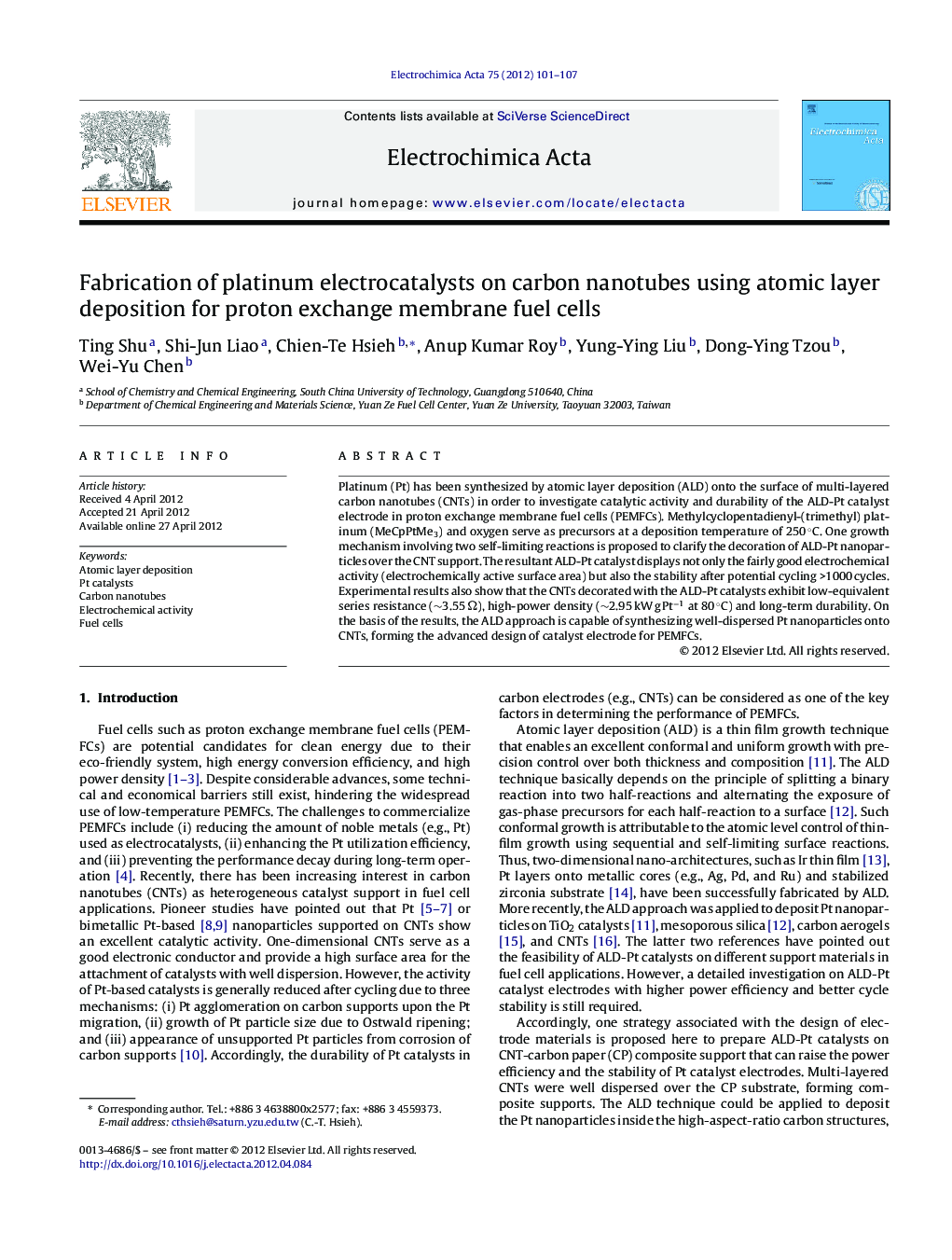| Article ID | Journal | Published Year | Pages | File Type |
|---|---|---|---|---|
| 188494 | Electrochimica Acta | 2012 | 7 Pages |
Platinum (Pt) has been synthesized by atomic layer deposition (ALD) onto the surface of multi-layered carbon nanotubes (CNTs) in order to investigate catalytic activity and durability of the ALD-Pt catalyst electrode in proton exchange membrane fuel cells (PEMFCs). Methylcyclopentadienyl-(trimethyl) platinum (MeCpPtMe3) and oxygen serve as precursors at a deposition temperature of 250 °C. One growth mechanism involving two self-limiting reactions is proposed to clarify the decoration of ALD-Pt nanoparticles over the CNT support. The resultant ALD-Pt catalyst displays not only the fairly good electrochemical activity (electrochemically active surface area) but also the stability after potential cycling >1000 cycles. Experimental results also show that the CNTs decorated with the ALD-Pt catalysts exhibit low-equivalent series resistance (∼3.55 Ω), high-power density (∼2.95 kW g Pt−1 at 80 °C) and long-term durability. On the basis of the results, the ALD approach is capable of synthesizing well-dispersed Pt nanoparticles onto CNTs, forming the advanced design of catalyst electrode for PEMFCs.
